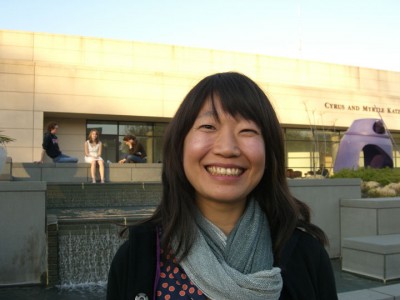Q&A with Writer Madeleine Thien
by Silvia Duarte / April 25, 2011 / No comments
Khet Mar on the Road
Eight international writers are exploring the Mid-Atlantic and the American South as part of Writers in Motion, an initiative of the University of Iowa’s International Writing Program. City of Asylum/Pittsburgh writer-in-residence Khet Mar is one of these participants.
Khet Mar is introducing some of her traveling partners in a series of short interviews. Today we present her Q&A with Madeleine Thien.
Madeleine Thien is the author of Simple Recipes, a collection of stories, and Certainty, a novel which was a finalist for the Kiriyama Prize and won the Amazon.ca/Books in Canada First Novel Award. Her work has appeared in Granta, The Walrus, Five Dials, Brick, and Asia Literary Review, and been translated into sixteen languages. In 2010 she received the Ovid Festival Prize, which is awarded to an international writer of promise. Her latest novel, Dogs at the Perimeter, is forthcoming in 2011.
In this interview, Madeleine Thien talks about her interest in Asia, the importance of freedom of speech and the Writers in Motion tour.
I love writing short stories, but I prefer reading novels. What kind of literature do you prefer to read and write?
I seem to be reading slower and slower now, with a different sort of intensity. The books that remain with me are the ones that just barely hold together, that are ambitious, strange, and restless, that demand a great deal of the reader. Dostoevsky is like this, and also W.G. Sebald and Alice Munro and Bao Ninh.
In Birmingham, during the Writers in Motion tour, we talked about this question little bit–how to write about the things that matter to us. I think I’m looking for a kind of structure in the novel or story that has an opening for the reader, that needs their knowledge and insight, their willingness to see how the fragments come together.
What made you want to travel to Asia and write about it?
At first, I wanted to travel to the countries, Malaysia and Hong Kong, where my parents were born. Now, going back and forth between Canada and Asia feels like an integral part of my life, as well as traveling widely, to many places. There are certain things that only become visible to me in Cambodia or Vietnam or Beirut, and other things that become clear in Montreal. In my writing, I try to overlap these perceptions, I try to piece together a more complex knowledge.
You said that writers in Canada are fortunate because there it is possible to cobble together a living from writing. But there are many countries, like mine, where writers and journalists face different challenges than earning a living. What do you think of the importance of freedom of speech?
Living in Canada, it’s sometimes easy to forget how fundamental this right is. But, in you, Khet, and in the other writers who travelled with us, I saw how much we cherished our right to respond and to speak, we valued it as fundamental belonging. Without it, there would be no way to examine the governments and structures around us, and to change them or make them more humane. This freedom seems connected to everything that follows.
This trip is to examine the different challenges presented by historical crises and upheavals, both natural and social. We could say this is more like a journalism trip. Do you think so? Are you going to write a fiction based on this trip? If so, how?
I think, at the moment, our travels feel a great deal like journalism. We are meeting many people, and asking a lot of questions; we are thinking, writing, and trying to relate one place to the next. At the same time, I also feel like we are using the methods of fiction–trying to understand individual lives, to give voice to a particular way of seeing the world, just as a character would say, from where I stand, this is how the world looks.
What was your favorite destination on this trip? Why?
It was Baltimore. Our guide there, Charlie Duff, told us, “If you see something that doesn’t make sense, ask why,” and this is how he led us through the city–continually asking why. He gave us context and history, and helped us see things that weren’t obvious or readily visible. He showed us a very complex place, a struggling city, but one whose citizens seemed to be asking questions about why this happened, how it could be different, and what it means to take responsibility for the place you live in.
Khet Mar has already introduced some of her traveling partners in a series of short interviews. Read the following:
Filipino Writer Vicente García Groyón
If you want to read what Khet Mar and the other writers are discovering through this trip, read their blog posts here.





